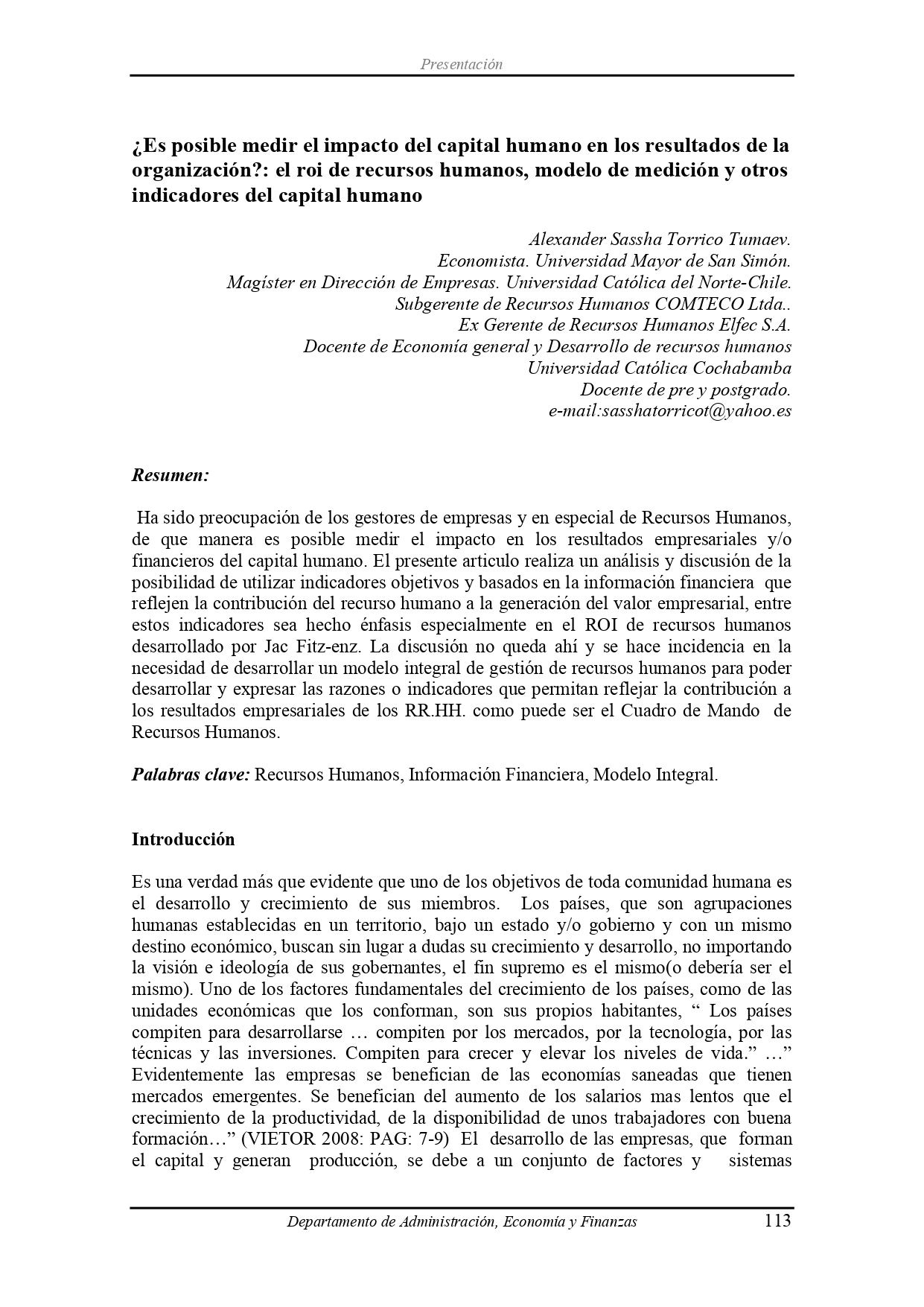Is it possible to measure the impact of human capital on organizational outcomes?: the ROI of Human Resources, measurement model, and other human capital indicators.
DOI:
https://doi.org/10.35319/pmh3h319Keywords:
Human Resources, Financial Information, Comprehensive ModelAbstract
Business managers—especially those in Human Resources—have long been concerned with how to measure the impact of human capital on business and/or financial outcomes. This article analyzes and discusses the possibility of using objective indicators based on financial information to reflect the contribution of human resources to business value creation, placing particular emphasis on the Human Resources ROI developed by Jac Fitz-enz. The discussion goes further by stressing the need to develop a comprehensive human resources management model to formulate and present indicators that reflect HR’s contribution to business results, such as the Human Resources Balanced Scorecard.
Downloads
References
BECKER E., Brian; HUSELID A., Mark; ULRICH, Dave (2001). El cuadro de mando de RRHH. Traducido por Ana García Bertran. España: Gestión 2000.
BODIE, Zvi; MERTON C., Robert (2003). Finanzas. Traducción: Prentice Hall. México: Editorial Pearson.
DE LA CALLE DURÁN, Ma. del Carmen; ORTIZ DE URBINA CRIADO, Marta (2004). Fundamentos de recursos humanos. España: Editorial Pearson.
FITZ-ENZ, Jac (2003). El ROI del capital humano. Traducido por Emili Atmetlla Benavent. España: Editorial Deusto.
PHILLIPS J., Jack (2006). Invertir en el capital humano. Traducido por Emili Atmetlla. España: Editorial Deusto.
VIETOR H.K., Richard (2008). Cómo compiten los países.
TORRES ORDOÑEZ, José Luis (2005). Enfoques para la medición del impacto de la gestión del capital humano en los resultados del negocio.
UNESCO (2010). Informe de la UNESCO sobre la ciencia 2010 (Resumen). Impreso en Francia: Ediciones UNESCO.

Downloads
Published
Issue
Section
License
Copyright (c) 2011 Revista Perspectivas

This work is licensed under a Creative Commons Attribution-NonCommercial-ShareAlike 4.0 International License.
La Revista Perspectivas de la Universidad Católica Boliviana, es una revista de acceso abierto, por lo tanto, es de libre acceso en su integridad. Está permitida su lectura, búsqueda, descarga, distribución y reutilización legal en cualquier tipo de soporte únicamente para fines no comerciales, siempre y cuando la obra sea debidamente citada.




